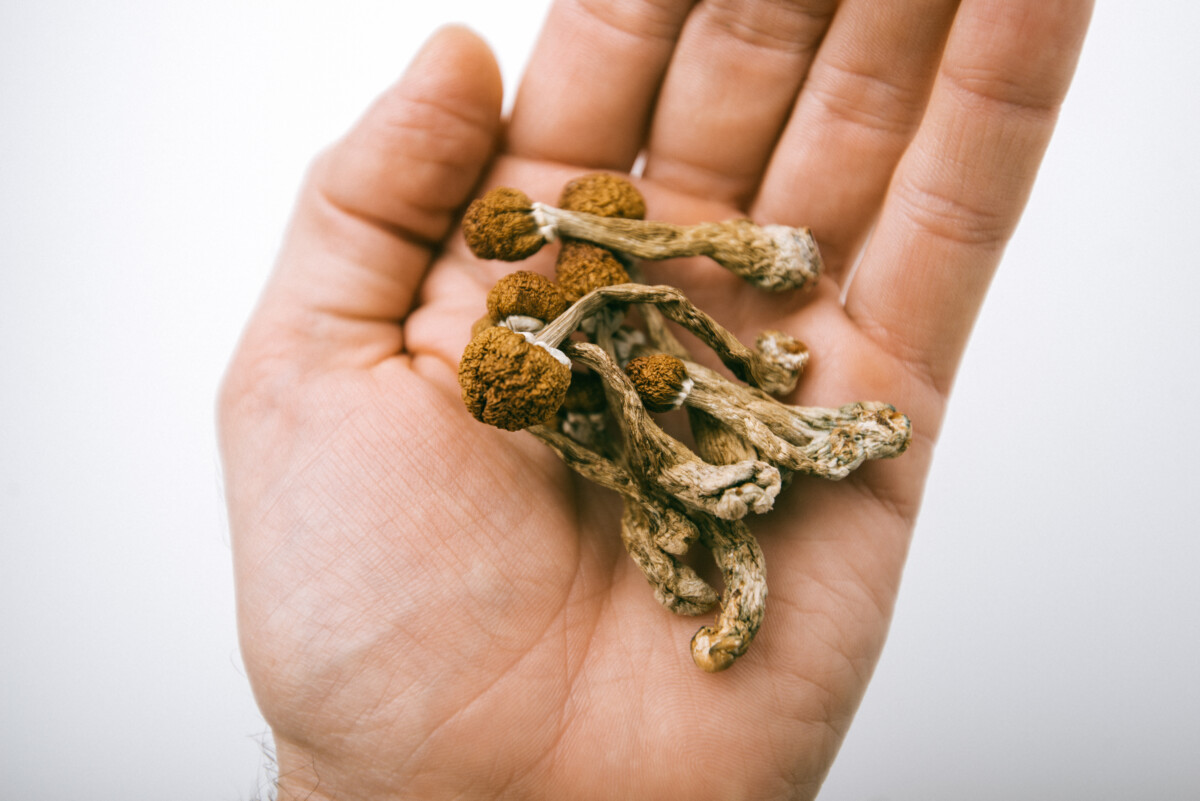
(© robtek - stock.adobe.com)
CINCINNATI — Psychedelics may help people alter how they perceive themselves, thus setting the stage for meaningful positive change in reality. Researchers from the University of Cincinnati say psychedelic drugs appear to help patients in a new study change unwanted behaviors by helping them reinvent their perceptions of themselves.
Study authors analyzed the post-treatment journals kept by a group of participants in a 2014 smoking cessation study, ultimately discovering psychedelics appeared effective in helping certain people quit smoking for years.
The research team took note of each participant's own words and found that psychedelics, in combination with talk therapy sessions, often helped longtime smokers begin to see themselves as nonsmokers. This new core identity may explain, study authors say, why 80 percent of these study participants stopped smoking for six months and another 60 percent remained smoke-free for five years.
The earlier study was led by scientists at Johns Hopkins University. They concluded that people who genuinely wanted to quit smoking cigarettes and received psilocybin (the active hallucinogenic ingredient in psychedelic mushrooms) and cognitive behavioral therapy (CBT), were much more likely to succeed than those who tried other traditional ways of quitting.
Lead study author and University of Cincinnati postdoctoral researcher Neşe Devenot notes these findings demonstrate the potential psychedelics offer when it comes to reshaping self-perceptions and helping people break free of old habits or addictions — even in the face of life’s daily, inevitable triggers and temptations.
“We saw again and again that people had this feeling that they were done with smoking and that they were a nonsmoker now,” Devenot says in a university release. She continues that a new sense of self might help people resist temptation or old triggers.
“If you want to give up meat but you smell a delicious steak, it might be hard to resist,” the study author explains. “But if you identify as a vegetarian and your sense of who you are is someone who does not eat meat, that identity helps encourage a different choice.”

How does CBT help in this process?
During the smoking cessation study, therapists provided participants with guided imagery exercises in which they had to envision smoking as a behavior external to their core identity. Then, participants documented their experience in writing.
One guided imagery exercise from the study, for example, characterized nicotine addiction as an external force, manipulating behavior for its own ends similar to the zombie-creating fungus in HBO’s recent series “The Last of Us.”
“Like the Cordyceps fungi that functionally transforms insects into ‘zombified’ marionettes to serve the fungi’s own reproductive purposes, smoking behavior is characterized as a form of parasitic manipulation,” the study authors write.
Albert Garcia-Romeu, an assistant professor of psychiatry and behavioral sciences at Johns Hopkins University, adds that psilocybin could serve as a catalyst to help motivate and inspire people when patients use it in combination with cognitive behavioral therapy.
“Cognitive behavioral therapy asks us to tune into the thoughts and feelings that we experience in our day-to-day lives and how those relate to our behaviors,” Prof. Garcia-Romeu comments. “In turn, people often tend to build a narrative or sense of self around those cognitions and behaviors.”
“This sets the stage for actually having the psilocybin experience, which can both provide novel insights and perspectives as well as serve as a marker of that identity shift like a rite of passage, signifying the change for instance from smoker to nonsmoker.”
While Devenot admits the study's sample size was relatively small (15 people), the results are still very encouraging.
“I feel that I am somehow fundamentally different to yesterday,” one participant writes. “I guess I feel like some sort of metamorphosis has taken place!”
Others said the treatment with psilocybin made quitting feel easier in comparison to past attempts. Another said that prior cravings for nicotine used to be unbearable - yet during the dosing session, that same participant was unable to even imagine craving a cigarette.
“The concept seems firmly cemented into my reality even today, that cravings are not something that are real,” one person explains.
So, how exactly do psychedelics help facilitate this transformation?
Devenot theorizes people tend to get stuck in their ways and patterns of behavior, often responding the same way to stressors or other triggers over and over again. She uses the analogy of a downhill skier who uses the same grooved path down the mountain that they have traveled a thousand times earlier.
“It’s not that simple, but it’s a metaphor for how we talk about psychedelics.”
“Psychedelics have been compared to skiing in fresh snow. Some researchers suggest that you might have more freedom to maneuver your skis anywhere down the mountain,” Devenot adds. “The entrenched grooves of bad habits might not have as much pull on our skis, so we can lay down other paths.”
“We’re looking for ways to help people shift behaviors and overcome the inertia of their habits that are more in line with their goals and aspirations,” the researcher concludes. “That’s why psychedelics are of wider interest to researchers.”
The study is published in the Kennedy Institute of Ethics Journal.











“80 percent of these study participants stopped smoking for six months and another 60 percent remained smoke-free for five years.” So out of the 10 people, 14 of them gave up smoking for 6 months or more.
Are you serious? Those who stopped for 5 years obviously also stopped for 6 months. I think your brain needs some new grooves. I hear there's a treatment for that.
I don't smoke but I compulsively pick my skin when anxious. I don't have access to psychedelics.
If you have to resort to taking psychedelic drugs to quit smoking, maybe your biggest problem is not a smoking habit.
this research has been around since before the government in it's infinate wisdom banned them. 60-70 years at least.
A very untrue and nonsense article.